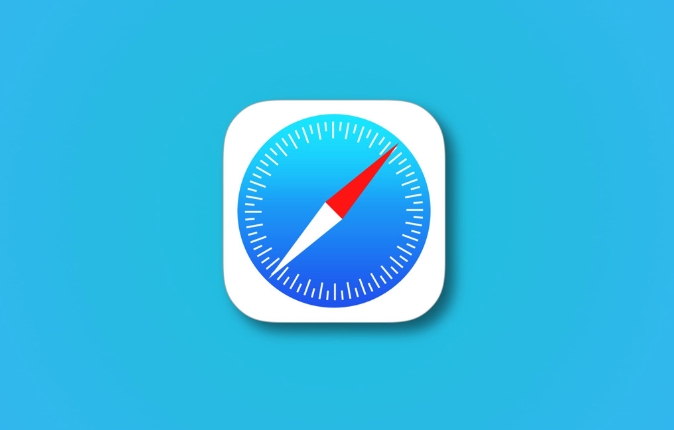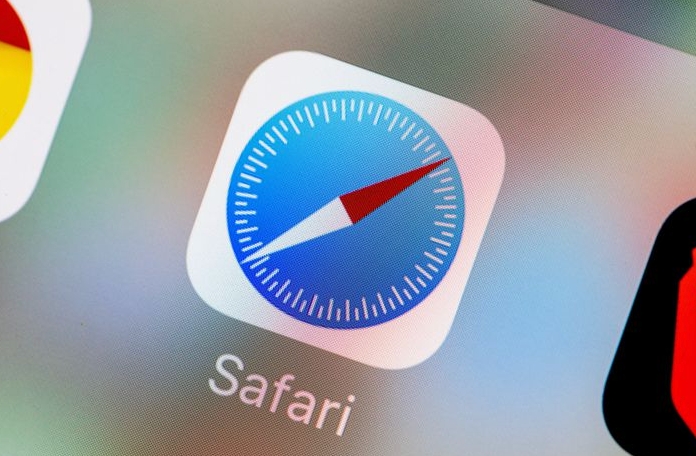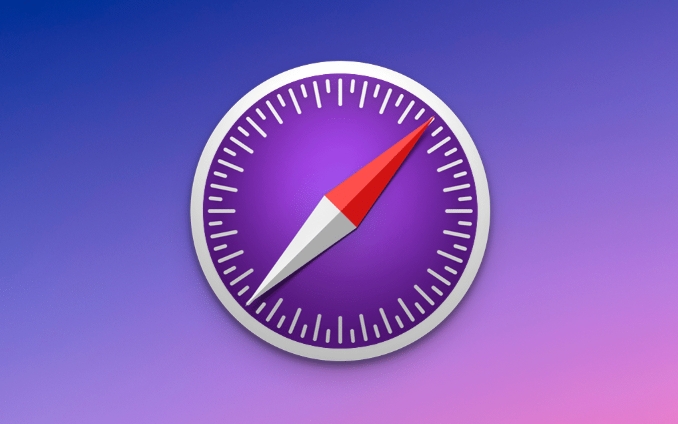Safari can't open the page because the address is invalid
Jul 28, 2025 am 12:59 AMCommon reasons and solutions for "invalid address" when Safari cannot open the page include: 1. Check whether the URL is spelled correctly, pay attention to letters inversion, missed or case problems; 2. Make sure that the correct protocol (HTTP/HTTPS) is used, and it is recommended to add https:// prefix when entering; 3. Clear Safari cache or try traceless mode to avoid cache errors affecting access; 4. Update Safari and the system to the latest version to prevent compatibility issues; 5. Check network connections, try to change Wi-Fi or mobile networks, and exclude the impact of proxy, VPN or network blocking. In most cases, troubleshooting spelling or formatting issues can quickly solve the problem.

There is a problem with the URL you entered. Safari cannot open the page and prompts that "the address is invalid" is usually because the URL format is incorrect, the spelling is wrong, or the link itself has expired. This question may seem simple, but it can sometimes be a little crazy, especially when you are sure you have not lost the wrong way.

Here are some common causes and solutions that can help you quickly troubleshoot problems:
Check if the URL is spelled correctly
This is the most common source of problems. For example, if you want to visit https://example.com , but accidentally type it into https://exmaple.com , Safari will report "Invalid address".

suggestion:
- Carefully check if the letters in the URL are reversed or missed
- Note that although case does not affect most websites, some servers are differentiated.
- If the link is copied from another place, confirm whether it is truncated or there is garbled code
For example, a common mistake is to write .com as .con or .cmo , which is the most likely to get stuck in the problem that cannot be seen at a glance.

Make sure the correct protocol is used (HTTP/HTTPS)
Some web pages must be accessed via HTTPS. If you only write HTTP when you enter manually or simply do not write a protocol, Safari may not recognize it.
Operation suggestions:
- Try to add
https://prefix when entering the URL - If you are not sure, you can try adding a prefix without a prefix to see if there is any difference
Sometimes you only enter the domain name part in the address bar, such as example.com , Safari will try to automatically complete, but if the completion fails, an error will be reported.
Clear Safari cache or try traceless mode
Sometimes a browser cache error can cause the seemingly normal URL to be unable to open.
You can do this:
- Go to Safari's settings to clear history and website data
- Use "Invisible Browsing" mode to open the same link to see if it can be accessed normally
- Update Safari and system to the latest version to avoid compatibility issues
This is rare, but if you find that a URL was opened before and now cannot be opened, it is worth a try.
Check if network connections and other devices are accessible
If the URL is fine and you also confirm that the spelling and protocol are fine, it may be a network problem.
Troubleshooting method:
- Try changing to Wi-Fi or mobile network
- Open this website on other mobile phones or computers
- Check if a proxy or VPN is used, sometimes these can affect access
In particular, the company or school network may block certain websites. At this time, you can see if this is the problem by changing the network.
Basically these possible reasons. When encountering a prompt like "Safari can't open the page because the address is invalid", start with the simplest problem, most of the time it is spelling or formatting. Don't rush to restart the device, first check if the URL is correct.
The above is the detailed content of Safari can't open the page because the address is invalid. For more information, please follow other related articles on the PHP Chinese website!

Hot AI Tools

Undress AI Tool
Undress images for free

Undresser.AI Undress
AI-powered app for creating realistic nude photos

AI Clothes Remover
Online AI tool for removing clothes from photos.

Clothoff.io
AI clothes remover

Video Face Swap
Swap faces in any video effortlessly with our completely free AI face swap tool!

Hot Article

Hot Tools

Notepad++7.3.1
Easy-to-use and free code editor

SublimeText3 Chinese version
Chinese version, very easy to use

Zend Studio 13.0.1
Powerful PHP integrated development environment

Dreamweaver CS6
Visual web development tools

SublimeText3 Mac version
God-level code editing software (SublimeText3)

Hot Topics
 Google Chrome Speed ??Browser Official Edition Portal
Jul 08, 2025 pm 02:30 PM
Google Chrome Speed ??Browser Official Edition Portal
Jul 08, 2025 pm 02:30 PM
Google Chrome is a free and fast multi-platform web browser developed by Google. It is known for its speed, stability and reliability. Chrome is based on the open source Chromium project and is widely used on devices such as desktops, laptops, tablets and smartphones. The browser has a clean interface and a wide range of customizable options, allowing users to personalize it according to their preferences. In addition, Chrome has a huge library of extensions that provide additional features such as ad blocking, password management and language translation, further enhancing the browsing experience.
 How to install Chrome extensions on mobile (Kiwi, etc.)
Jul 11, 2025 am 12:50 AM
How to install Chrome extensions on mobile (Kiwi, etc.)
Jul 11, 2025 am 12:50 AM
Android phones can install Chrome extensions through KiwiBrowser. KiwiBrowser is an open source browser based on Chromium on the Android side. It supports the installation of the Chrome Web Store extension. The process is: Open Kiwi and enter the Chrome store, search for extensions, and click "Add to Chrome" to complete the installation; when using it, you need to pay attention to network stability, extension compatibility, permission granting and installation quantity; other alternatives include FirefoxMobile and YandexBrowser, but Kiwi is still the most stable and convenient choice at present.
 How to change the user agent string in Safari without extensions?
Jul 11, 2025 am 12:48 AM
How to change the user agent string in Safari without extensions?
Jul 11, 2025 am 12:48 AM
On macOS, you can modify Safari's UserAgent through developer tools or terminals, but iOS/iPadOS does not support it. The specific methods are: 1. Use the developer tools to modify temporarily: select preset UA after enabling the development menu; 2. Permanent modification through the terminal: enter the command to write a custom UA; 3. iOS/iPadOS cannot be modified directly, and it needs to rely on a third-party application or browser.
 What firewall ports does Chrome Remote Desktop use
Jul 13, 2025 am 12:43 AM
What firewall ports does Chrome Remote Desktop use
Jul 13, 2025 am 12:43 AM
ChromeRemoteDesktopusesport443(HTTPS)astheprimaryportforsecureconnections,andoccasionallyport80(HTTP)asafallback.ItalsoleveragesSTUN,TURN,andICEprotocolstoestablishpeer-to-peerconnections,withTURNactingasarelayifdirectconnectionsfail.Toensuresmoothop
 How to translate a page in Google Chrome
Jul 03, 2025 am 12:14 AM
How to translate a page in Google Chrome
Jul 03, 2025 am 12:14 AM
The method of translating web pages by Chrome browsers is not limited to automatic prompts, but can also be manually operated and solved common problems. 1. The easiest way is to click "Translation" in the translation prompt bar that automatically pops up when opening a web page in a non-default language; 2. If the prompt does not pop up, you can click the three points on the right side of the address bar → select "Translation [Language] as [Language]" to trigger manually; 3. Check whether the translation function is enabled in the settings, some websites block translation or extend conflicts, you can try invisible mode or turn off the plug-in; 4. For content that is incompletely translated, you can refresh the page, change the network environment, or use third-party extensions such as "GoogleTranslate" to supplement; 5. Dynamically load the content and wait for a few seconds or interaction before it is translated.
 How to view chrome incognito history?
Jul 09, 2025 am 12:31 AM
How to view chrome incognito history?
Jul 09, 2025 am 12:31 AM
Chrome's incognito browsing history cannot be viewed directly, but it can be obtained indirectly through three methods. 1. Use command line tools to view the DNS cache, which can only obtain some domain name information and is not durable; 2. Check the router or network monitoring log, which requires certain network knowledge and depends on network settings; 3. Install third-party monitoring tools and configure in advance to record invisible browsing behavior. Overall, the invisibility mode is designed to protect privacy. All the above methods have limitations. It is recommended to choose whether to use monitoring methods based on actual needs.
 How to force quit Google Chrome on Mac
Jul 07, 2025 am 12:14 AM
How to force quit Google Chrome on Mac
Jul 07, 2025 am 12:14 AM
There are several ways to force exit from unresponsive Chrome on your Mac. First, use the keyboard shortcut Command Option Esc to open the "Force Exit Application" window, select Google Chrome and click "Force Exit". Second, click on the Apple menu, select "Force Exit", and select Chrome from the list and confirm quit. If Chrome completely freezes or consumes too much memory, you can open ActivityMonitor, find all Chrome-related processes, and click the X button one by one to end them. Finally, as an alternative, you can enter killallGoogle\Chrome in Terminal
 How to simulate different timezones in Chrome
Jul 13, 2025 am 12:19 AM
How to simulate different timezones in Chrome
Jul 13, 2025 am 12:19 AM
To test page behavior in different time zones in Chrome, there are three ways to do it. 1. Use ChromeDevTools to simulate the time zone: Open DevTools → Click on three points → MoreTools → Sensors, check the overlay option in the DateandTime section and select the target time zone. This setting only takes effect in the current session; 2. Specify the time zone through the command line startup parameters: close all Chrome instances and execute chrome.exe--timezone="target time zone" to affect the entire browser instance; 3. Use JavaScript to overwrite the behavior of the Date object, and the fixed time value is used to accurately control the JS time.






